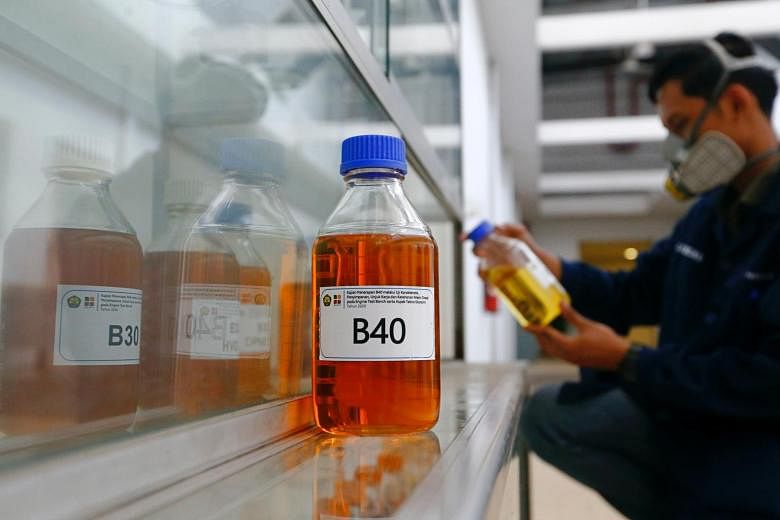JAKARTA (REUTERS) - Indonesia spent more on biodiesel subsidies than funds it collected through export levies this year, Mr Eddy Abdurrachman, president director of the country's Estate Crop Fund (BPDP) said on Thursday (Dec 17).
BPDP, the government body in charge of subsidising Indonesia's palm oil programmes, estimated 17-18 trillion rupiah had been raised from levies this year, while 25.7 trillion rupiah (S$2.42 billion) had been spent subsidising the price difference between crude oil and palm oil, he said.
"In 2020... crude oil price tended to go down, while crude palm oil trend is going up, so that there's this price gap that BPDP should bear," he told a virtual conference.
Indonesia makes it compulsory for its diesel to be blended with 30 per cent biocontent made out of palm oil, as it tries to be less dependent on fuel imports and mop up palm supply.
But a slump in fuel prices this year has made the programme less economical, and plans to increase the biocontent to 40 per cent have been delayed due to funding issues.
To raise funds, Indonesia announced higher export levies on crude palm oil (CPO) exports earlier this month from a flat US$55 (S$73) per tonne of CPO to a progressive levy system of US$55 to US$255 depending on the price.
With the new levy system, BPDP expects to raise between 36 trillion and 45 trillion rupiah next year to fund the biodiesel programme and a replanting programme for smallholder farmers, Mr Eddy said.

